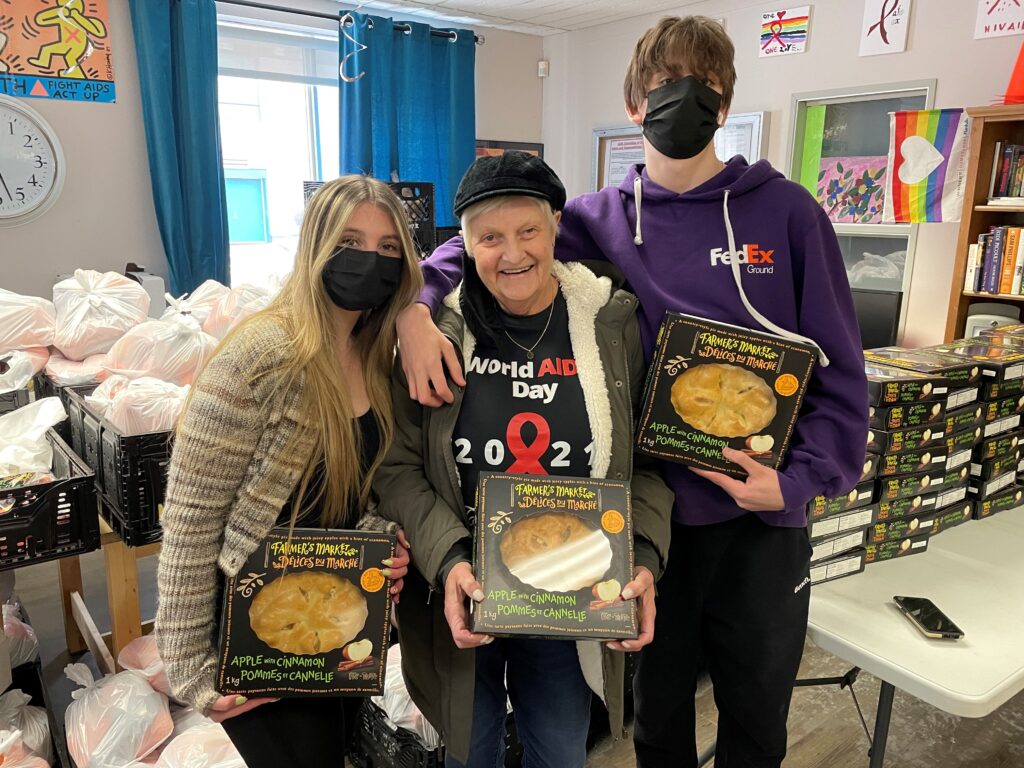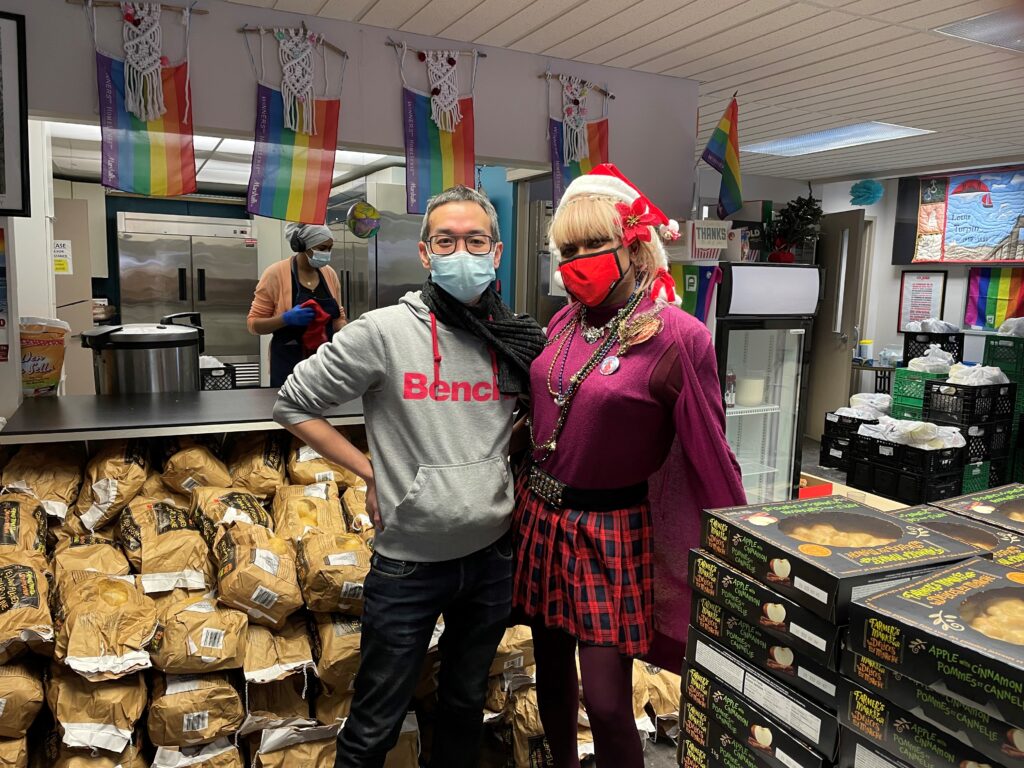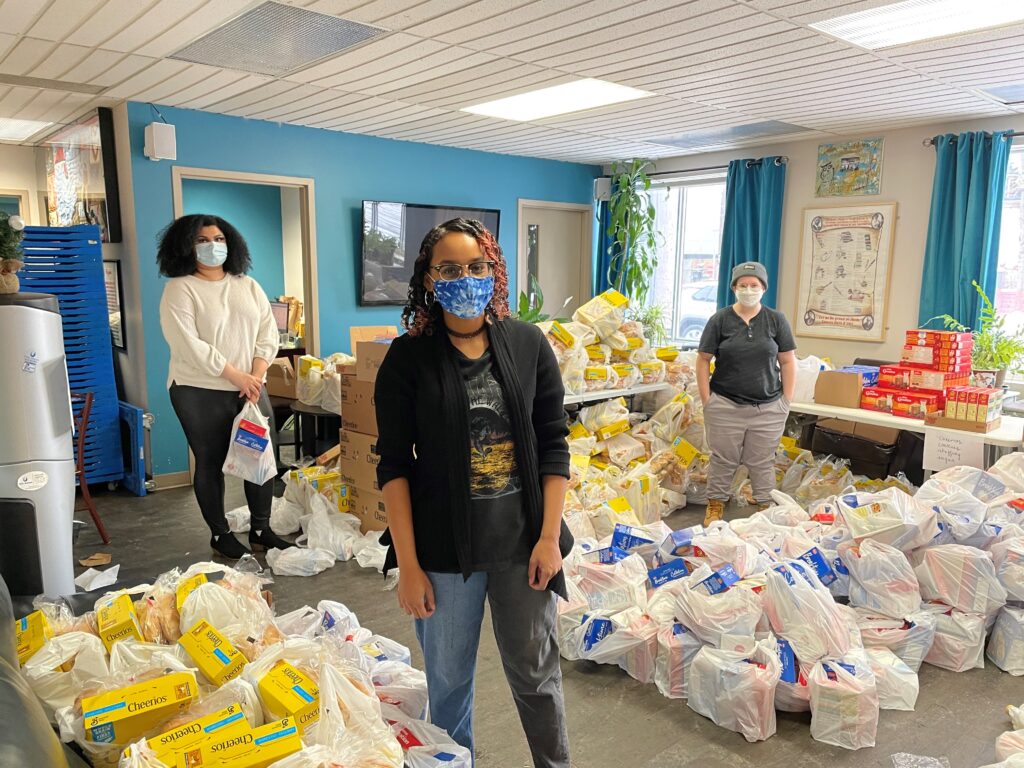Not all people experience food insecurity equally. Some populations, like people living with HIV/AIDS, are more vulnerable to hunger because of ongoing stigma and discrimination rooted in homophobia, transphobia, racism, and gender-based violence that they face.
According to Food Banks Canada research, people living with HIV/AIDS are more likely to experience poverty and rely on emergency services like food banks to meet their basic needs.
That’s why the Ottawa Food Bank supports organizations like the AIDS Committee of Ottawa, which provides a refuge for queer and trans community members who might not feel comfortable accessing services elsewhere due to their gender identity and/or sexual orientation.
The ACO was born out of necessity at the peak of the AIDS crisis in 1985, when gay men were dying from HIV/AIDS at an alarming rate. In the absence of any help coming from the government, community members rallied together to call on their elected officials to provide life-saving medications.
Community members also opened their homes to one another to host support groups, a practice that has been lovingly memorialized today in the ACO’s drop-in centre, the Living Room. This cozy, homey space is aptly named, not only as a nod to the organization’s humble beginnings, but also as a reflection of their primary goal — to ensure that people living with HIV/AIDS have the longest and best quality of life possible.

The AIDS Committee of Ottawa Holiday Hamper Program. Photo: AIDS Committee of Ottawa.
The ACO also offers a wide range of emergency and psychosocial supports to people living with HIV/AIDS, including immigration, employment, housing and mental health assistance, as well as harm reduction supplies, HIV and STD testing, and, of course, a food program.
In fact, food is central to most of the work the ACO does, since “if you have an empty stomach, nothing else really matters… before we can feed your brain and your mind with educational resources, we have to feed your tummy,” says Executive Director Khaled Salam. “Nutritious food is also necessary for folks to take their meds with and to keep them healthy and well.”

The AIDS Committee of Ottawa Holiday Hamper Program. Photo: AIDS Committee of Ottawa.
As an agency of the Ottawa Food Bank, the ACO receives a food delivery every Friday morning that their staff and volunteers organize before opening their pantry doors to 70–80 community members at 1 p.m. For folks who face challenges related to accessibility, staff and volunteers deliver food directly to their doors, with the added benefit of performing wellness checks to reduce feelings of isolation. There are also programs that serve hot meals, workshops on how to eat healthy on a limited budget, and holiday food hampers with all the fixings for families to enjoy a turkey dinner.

The AIDS Committee of Ottawa Holiday Hamper Program. Photo: AIDS Committee of Ottawa.
Despite all the work they do, Salam warns that food banks are only one piece of the puzzle when it comes to achieving food security in our nation’s capital and across the country — the cycle of poverty in Canada must be urgently addressed with affordable housing and a universal basic income.
To ensure that no one is left behind, Food Banks Canada is advocating for the government to introduce new supports for renters living with low incomes and provide every Canadian with a minimum income floor so they can lift themselves up and move ahead.